Rain or mother's tears are vast
The toad under the bed keeps crying to heaven.
Grinding teeth or grinding intestines hurts more.
The village fields are flooded
Mother's lullaby wet through the wind
Turtle carrying rock on the temple
Mother's back is wet, turtle's back is dry.
She sat silently praying Nam Mo
I hope the water recedes so the chicken coop will dry up.
Lullaby like crying in distant fields
Mother lulls the storm or lulls the child
The light in the wind is flickering
Mother's shadow blurred, thin with worry.
He couldn't get over his cough.
Still give the torn shirt to the sieve
She sewed two rows of tears
Instead of you, please patch up the village soul and raise me.
Storms over decades
People follow incense smoke to a quiet place
The old folk song I hold
Mother's lullaby sprouts in my hand again
Lullaby for green rice plants
I stand here in the golden sunshine this afternoon, lost in thought...
She threw herself into the village fields.
Who will mend my clothes now?
Le Dinh Tien
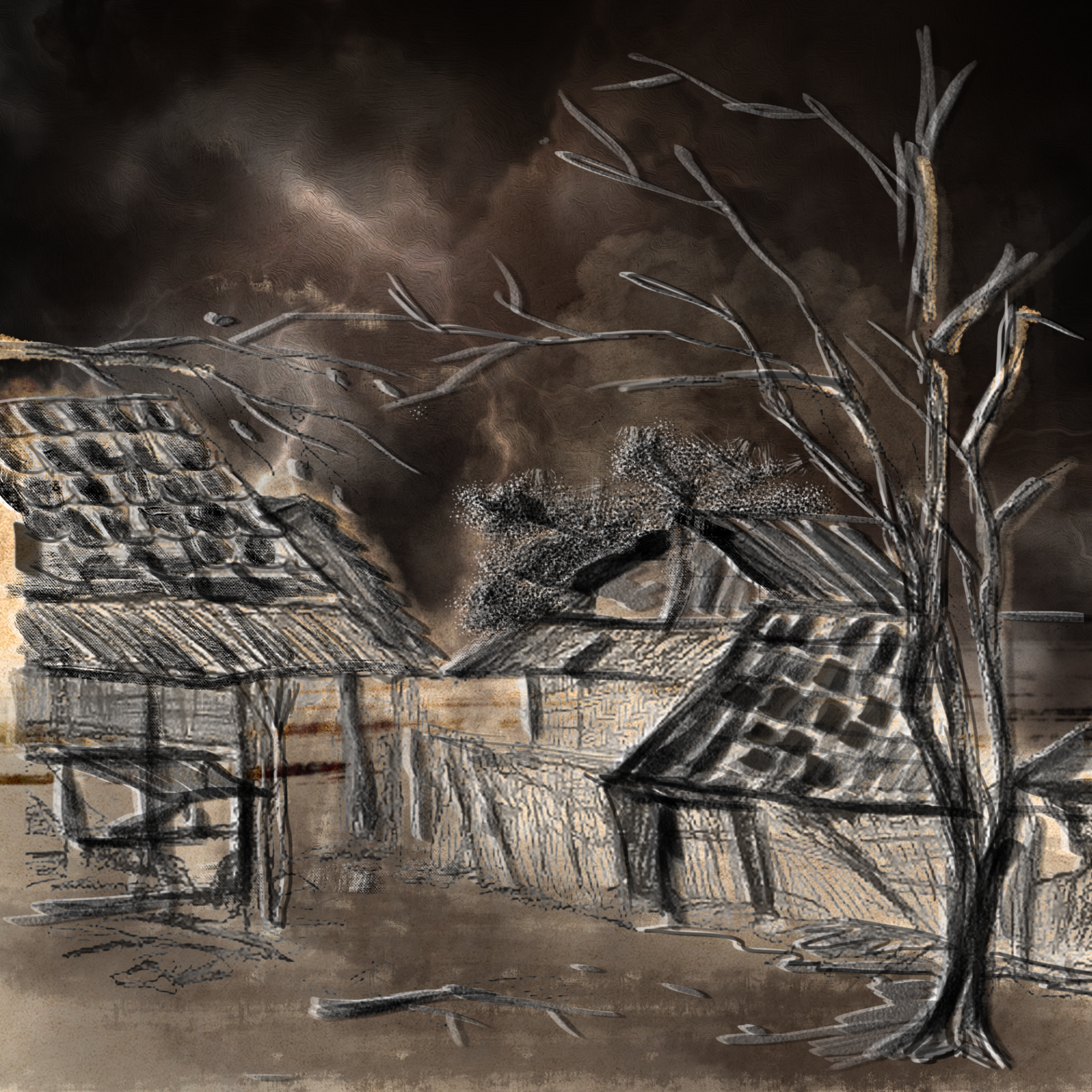 |
| Illustration: HH |
Comment:
Never before has our country had to endure so many consecutive storms recently hitting the S-shaped strip of land, which a poet has compared to “a dike on the peninsula”. A purely agricultural country with a long-standing rice civilization faced with floods and storms that caused so much devastation, flooding fields, houses, villages, and the flood and storm marks left behind so many memories.
Poet Le Dinh Tien, a simple son of a poor village, is a good poet who writes six-eight verse. Recently, the author won a high prize in the poetry contest "Poetry and Origin". His poetry begins from the folk source of the countryside, haunting the mind with detailed discoveries that are quite subtle and vivid, creating the village soul and spirit through the appearance of relatives. In the poem "Ru bao" are the images of mother, grandmother and grandfather - farmers who have anchored the countryside with their whole life and soul through many storms and floods of the earth and sky.
When reading poems about storms, I always thought I would see images of wind and rain tossing and people's resentment towards harsh nature. But no, here the poet "lulls the storm", lulls calmly, lulls away all the hardships and fatigue, stretches himself, and unleashes his strength to fight the storm. This is also a way of positioning himself calmly and confidently to overcome the cruelty and destruction of the storm. It is also a gentle way of behaving but has the power to spread, a direction of goodness, an indomitable determination.
Le Dinh Tien's poems often use folk sayings to convey new messages: "Under the bed, the toad keeps crying to the sky/Grinding its teeth or grinding its intestines more painfully" starting from the idiom: "The toad is the uncle of the sky". Or: "The turtle carries stones on the pagoda/The mother's back is wet, the turtle's back is still dry" starting from a folk cultural legend. This is what makes his poems associated with the village consciousness, with the village soul. Village culture is an infinite power, helping us realize the human value of the beauty of the soul, the simplicity, but also very lasting and profound.
“Lullaby of the Storm” begins with the image of rain and mother: “Is it rain or mother’s tears?” and: “The village fields are flooded/Mother’s lullaby is wet through the wind.” Mother “lullaby of the storm” is also the wish for the natural disaster to pass quickly, it is a coaxing: “Go to sleep, the storm at the end of the field.” The verse exudes compassion and tolerance, a sincere comfort and dares to accept all challenges with gentleness but steadfastness. It is also a way to convey a message: “The lullaby is like crying in the distant fields/Mother lulls the storm or lulls her child.” The image of mother in the dim light is a spark with many flashes of light, with many shares: “The light in the wind is flickering/Mother’s shadow is blurred and worn out with worry.” For grandmother and grandfather, the worry is very specific, suitable for the psychology of old people: “Grandma sits silently praying Namo/Hopefully the water will recede to dry the chicken coop”; and for grandfather: “He could not get over his cough/And left his torn shirt for the sieve.”
I really like the small but "luminous" details in Le Dinh Tien's poems. It is a subtle and higher observation and discovery, a confessional penetration of the soul, a whispering of the heart, imbued with the lives of many people. It is very interesting that there is a character who seems to be inanimate but haunts the reader, that is the image of a sieve that has sifted many grains of rice, heavy rains, and stormy winds. The sieve is a small agricultural tool closely associated with farmers. I also wrote the verse: "Mother reaps the field or the field sifts mother".
The poem “Lullaby of the Storm” tells a touching story about a grandfather giving his torn shirt to the sieve: “She sewed two rows of tears/For him, mending the village soul that raised me” a truly beautiful, touching, poignant, haunting and talented verse.
Mother “Lullaby of the storm” to overcome: “Mother’s lullaby sprouts again in her hand/Lullaby for the green rice plants”. A sprout of life sprouts from the storm, a steadfast determination. That is also a desire to live, a finale about love of life, love of people, love of fields - a very specific love that has incarnated, accompanied, and convinced. The tone of the poem at the end falls with a humane ending when: “She threw herself into the village field/Now who will mend the clothes for the sieve, sieve?”. That is also the awakening, self-questioning to help us live better, more honestly, to overcome our own storms.
Nguyen Ngoc Phu
Source: https://baoquangtri.vn/van-hoa/202510/den-voi-bai-tho-hay-ru-bao-f86374c/



![[Photo] Flooding on the right side of the gate, entrance to Hue Citadel](https://vphoto.vietnam.vn/thumb/1200x675/vietnam/resource/IMAGE/2025/10/28/1761660788143_ndo_br_gen-h-z7165069467254-74c71c36d0cb396744b678cec80552f0-2-jpg.webp)
![[Photo] Draft documents of the 14th Party Congress reach people at the Commune Cultural Post Offices](https://vphoto.vietnam.vn/thumb/1200x675/vietnam/resource/IMAGE/2025/10/28/1761642182616_du-thao-tai-tinh-hung-yen-4070-5235-jpg.webp)
![[Photo] National Assembly Chairman Tran Thanh Man received a delegation of the Social Democratic Party of Germany](https://vphoto.vietnam.vn/thumb/1200x675/vietnam/resource/IMAGE/2025/10/28/1761652150406_ndo_br_cover-3345-jpg.webp)


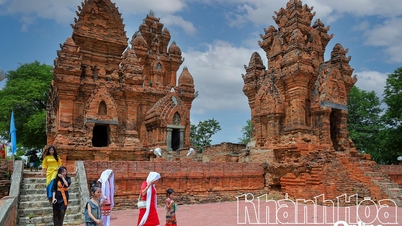

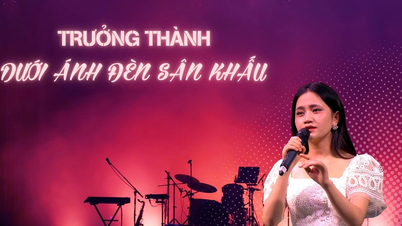




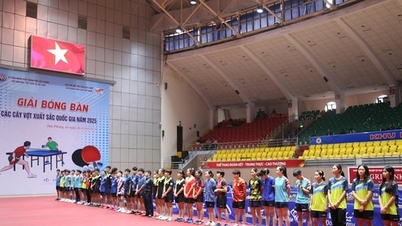






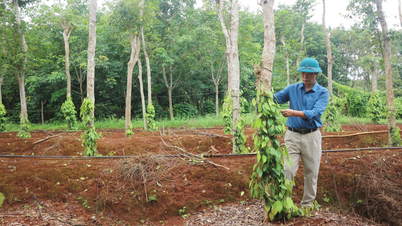
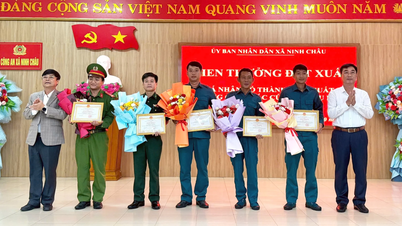
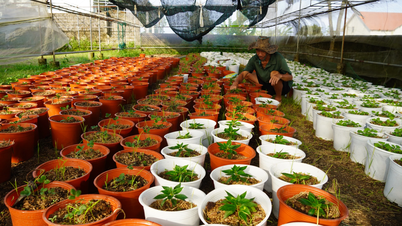

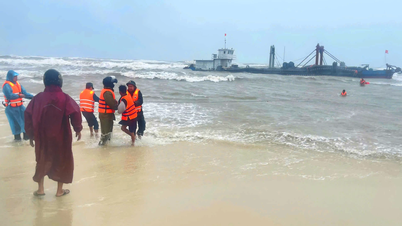

![[Photo] President Luong Cuong attends the 80th Anniversary of the Traditional Day of the Armed Forces of Military Region 3](https://vphoto.vietnam.vn/thumb/1200x675/vietnam/resource/IMAGE/2025/10/28/1761635584312_ndo_br_1-jpg.webp)








































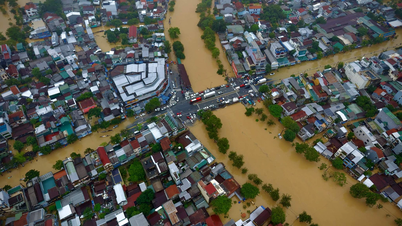













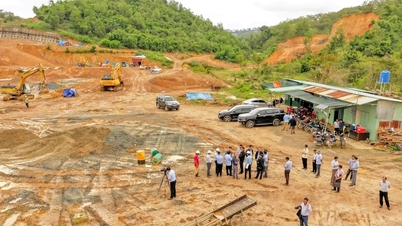



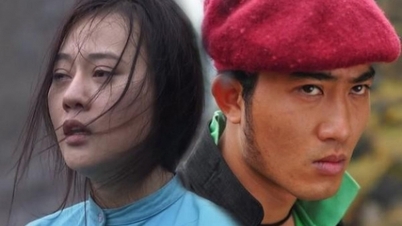

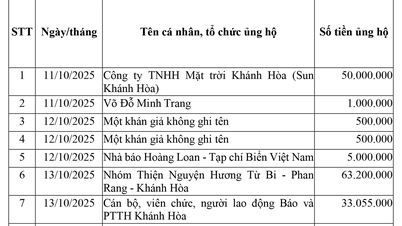

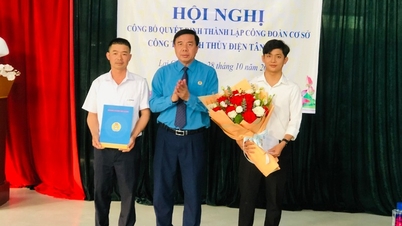















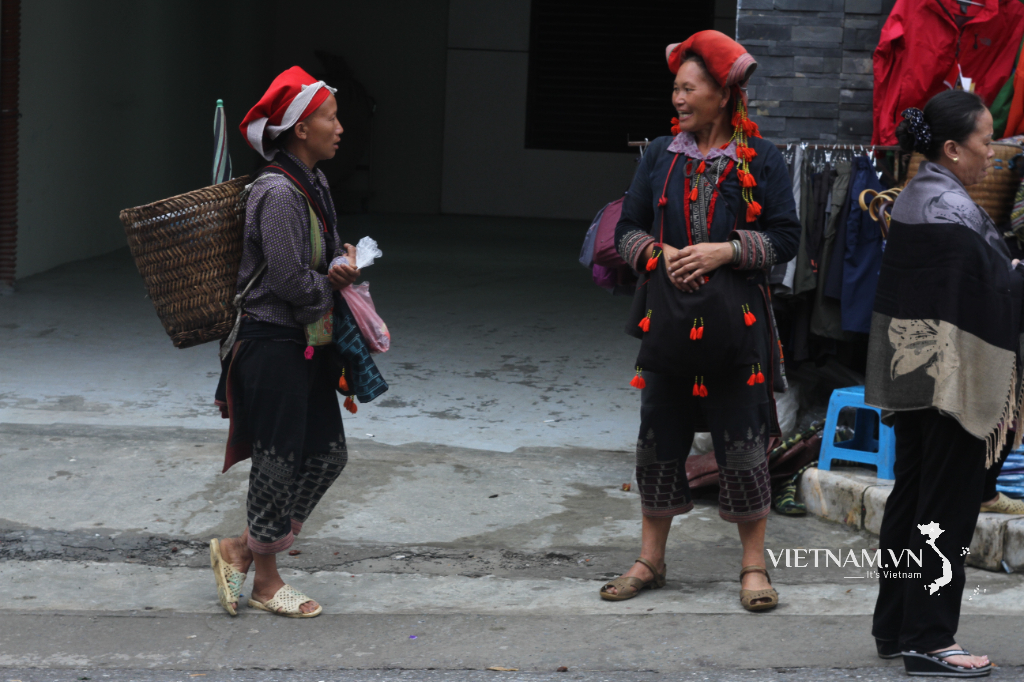
Comment (0)